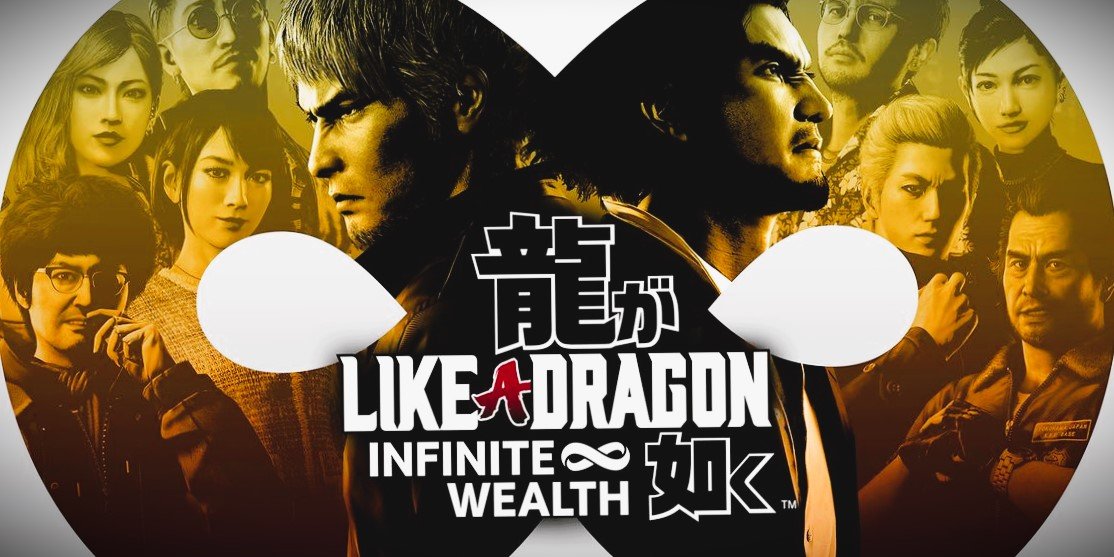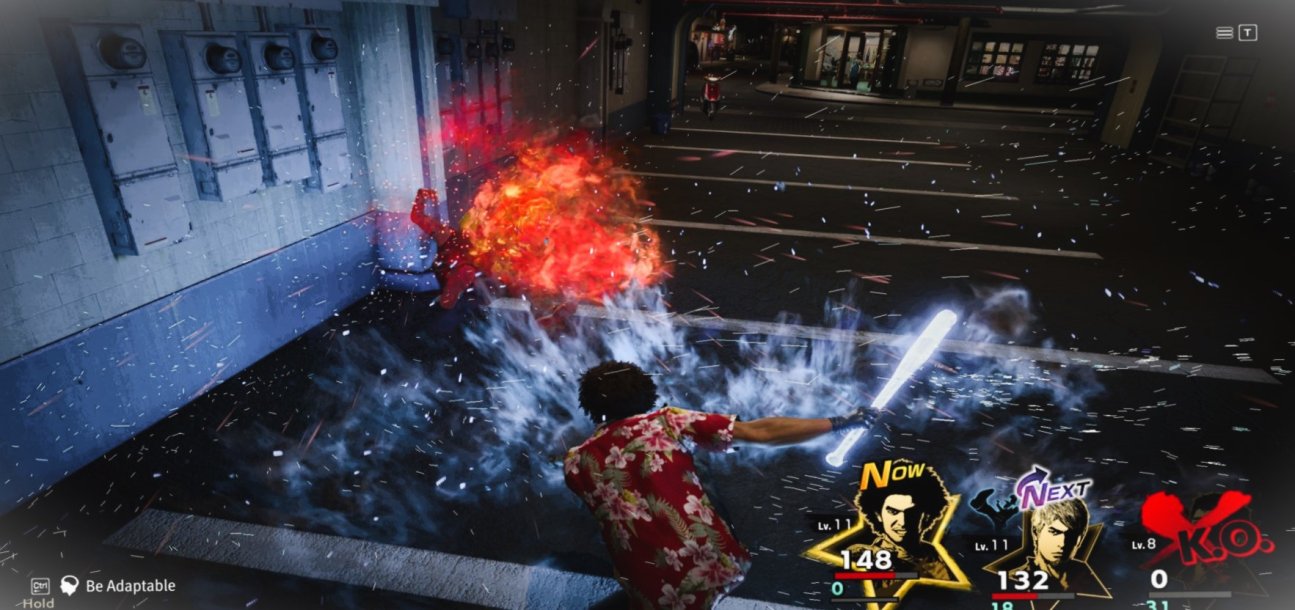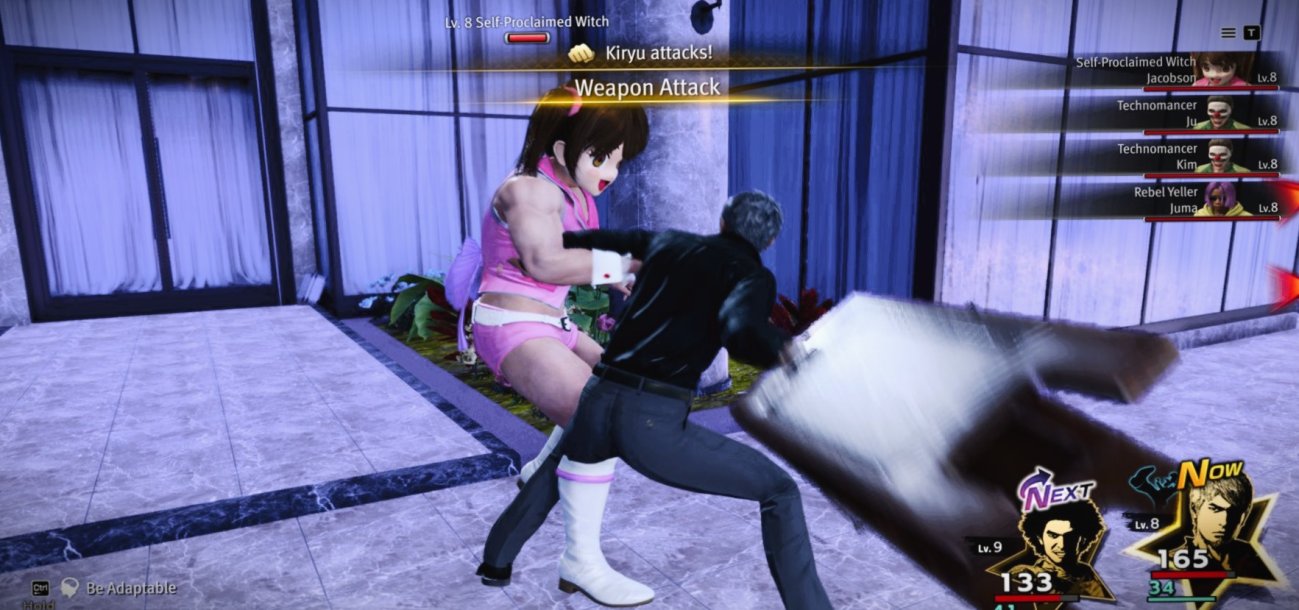
Before diving into Like a Dragon: Infinite Wealth, it's essential to acknowledge the rich history that precedes it, both within the game's world and in reality. This latest addition to the Yakuza series pays homage to its past by continuing its main storyline, reintroducing beloved characters, and introducing new ones, all while delivering a role-playing experience with a unique style and flair. Ryu Ga Gotoku Studio, the developer, has skillfully blended various game elements into an RPG that offers both enjoyment and fulfillment in many ways. However, Infinite Wealth struggles a bit with maintaining the story's momentum between missions, given the abundance of content to explore and experience, which can feel overwhelming at times. Nonetheless, there's an undeniable appeal to the frenetic energy that permeates the world of Like a Dragon: Infinite Wealth.
For newcomers unfamiliar with the series or its backstory, jumping straight into the game can be challenging. The first chapter mainly focuses on recapping past events to bring players up to speed with the latest installment. With protagonist Ichiban Kasuga at the helm, the game utilizes flashbacks and cutscenes to provide context for new players. Various gangs have dissolved, former gangsters seek redemption, and Kasuga aims to live a life of assistance to those in need. Despite the game's attempts, the influx of names and characters can leave newcomers feeling bewildered.
The central narrative revolves around a missing parental figure, but its significance may elude new players. Title cards identifying key characters offer some guidance, yet early on, there's a sense of being out of sync with the characters' motivations and interactions. While the glimpses into the backstory may spark curiosity, prompting players to explore previous entries in the series, if only to understand the referenced history, it remains a somewhat disjointed experience for those unfamiliar with the franchise.

Originally known as Yakuza, the series debuted in 2005 and has seen eight mainline titles released since then, undergoing a title change with 2020's Yakuza: Like a Dragon. Set in fictionalized versions of real Japanese locations, the series took players on immersive journeys. Like a Dragon: Infinite Wealth breaks away from the Japanese setting for the first time, transporting players to Hawaii, a change likely welcomed by many fans. While the initial chapters may not feel cramped, progressing to the core part of the game reveals a significant difference, with earlier maps seeming compact in comparison. Both small and large areas offer plenty to do, making it unsuitable for those seeking a strictly linear storyline. The abundance of side quests, auto-triggered events, and combat ensures a lengthy playthrough, especially for first-timers.
The game is teeming with NPCs, engaging players in turn-based combat that emphasizes strategy and planning. Standard attacks deal regular damage, with well-timed button presses during animations providing bonus damage or critical hits. Players can also wield items found on the streets, such as bicycles or traffic cones, for added damage. Additionally, directing enemies' trajectories can damage other foes nearby. Special skills further enhance combat, featuring unique animations or requiring quick-time event inputs for extra damage.
But the complexity of combat doesn't end there. Attacks that send enemies flying into teammates trigger additional attacks, creating a chain effect that dispatches foes efficiently. However, precise positioning is crucial, as characters have limited movement range and may unpredictably end up after executing a move. Experimentation will be necessary to optimize combo potential, requiring players to learn through trial and error.

The combination of various combat systems creates an engaging experience that remains enjoyable for much of the game. However, there are moments when the repetition of battling the same enemies in familiar city sections can become tiresome. Thankfully, Like a Dragon introduces an auto-battle feature, giving players the option to conserve skill-based attacks for later use. Opinions may vary on whether the complexity justifies the turn-based RPG battle system, but fans of this genre will likely find the combat in Like a Dragon thoroughly satisfying.
From the outset, Like a Dragon: Infinite Wealth captivates with its stunning visuals. The early cutscenes and in-game sequences are visually appealing and well-directed, leaving players wanting more. Character models are polished, avoiding the uncanny valley effect often seen in similar games. Ichiban Kasuga, the protagonist, shines throughout the game, shouldering much of the story's weight. Even when familiar faces from previous titles make appearances, Kasuga's infectious grin, attitude, and endearing naivety make him a standout character in the gaming world. His earnest efforts to do what's right and his willingness to aid those around him lend credibility and enjoyment to his story and actions.

Once players move beyond the initial chapters, they'll find themselves immersed in a wealth of activities, leading to hours of free-roaming without focusing on the main story. Like a Dragon: Infinite Wealth boasts a wide array of side-quests and sub-quests, covering almost every type seen in gaming. From fetch quests to photography sessions, delivery missions to escape challenges, memory games to quick-time events, and even some surprises best left unspoiled, the game offers a diverse range of activities. Most of these quests are enjoyable, often featuring unique twists that set them apart from typical game content.
Numerous stores offer the usual RPG fare of healing items and stat-boosting items, albeit with a modern twist. Hawaiian and Japanese cuisines, snacks, and beverages are plentiful, providing a contemporary touch to the traditional RPG item menu. Weapon and armor shops not only stock standard gear but also offer items with stat bonuses, such as Hawaiian shirts providing defense boosts. This modern interpretation adds an interesting layer to the genre's classic elements, enhancing the game's overall experience.

When playing the game in its original Japanese language, there are moments where the switch from Japanese to English can be jarring. However, overall, the voice acting is excellent, with each actor deserving recognition for bringing their character to life. This extends to the side characters and especially the bosses, who may not seem as intimidating during battles but exude a commanding presence with their swagger and attitude. It's impressive for such a large game to feature so many well-acted and well-written lines, even in situations other games might avoid due to cost constraints. While there's plenty of humor and banter, the game also manages to inject moments of gravity and emotion, which can be unexpectedly poignant. However, these moments are often followed by absurd situations that undercut the emotional buildup.
Like a Dragon: Infinite Wealth does suffer from some pacing issues related to excessive walking. While it's common for RPGs to involve a fair amount of traversal, this game takes it to another level. While taxis offer a fast travel option, they come at a cost, which can be prohibitive in the early stages of the game. Despite the game's title suggesting otherwise, money can be hard to come by early on. While other transportation options become available later, players may find themselves trudging from place to place, encountering enemy groups along the way or trying to avoid them. This excessive walking can feel more like a chore than necessary, especially when faster travel options require spending hard-earned money.

There's an issue with side quests occasionally leading players into battles they may not be prepared for immediately after completing the quest. While these occurrences are rare, they happen frequently enough to warrant mention. It's frustrating when Kasuga and his friends emerge victorious from a side mission, only to be thrust back into the open world with multiple high-level enemy groups. While death in these encounters isn't overly punishing, it does incur a monetary cost. Knowing that defeat is likely can be mildly annoying, especially when it happens frequently. Additionally, there are instances where the game transitions from a story mission to combat without allowing players time to heal up.
Whether hanging out at a bar, exploring the cities, or engaging in battles, Kasuga and his friends are surrounded by music and sound that enhance the game's atmosphere. The karaoke music videos add charm to Kasuga's character, while the faster tempo music adds excitement to the action. Some audio effects during combat interactions with objects may seem odd, though not everyone may notice them.

Like a Dragon: Infinite Wealth often feels like a movie, presenting a wild, zany, and over-the-top action spectacle with moments of humor and wit. It explores multiple themes and messages, anchored by an immensely likable protagonist who is easily distracted by his surroundings and the people he encounters. Despite the chaos, the game manages to strike a balance and deliver a cohesive experience.
Even with the abundance of side missions diverting attention from the main storyline, Like a Dragon: Infinite Wealth still offers a compelling narrative. While turn-based combat may not be everyone's cup of tea, it caters to a wide range of tastes and interests within the gaming community. The game succeeds in holding players' interest, a challenging feat in today's gaming landscape. Its controlled chaos is executed masterfully, eliciting smiles and laughter from players as they journey alongside Ichiban Kasuga and the rest of the cast.
